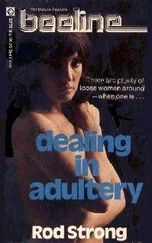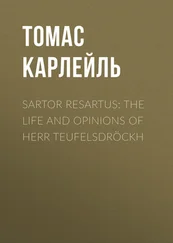Vladimir Nabokov - Strong opinions
Здесь есть возможность читать онлайн «Vladimir Nabokov - Strong opinions» весь текст электронной книги совершенно бесплатно (целиком полную версию без сокращений). В некоторых случаях можно слушать аудио, скачать через торрент в формате fb2 и присутствует краткое содержание. Город: New York, Год выпуска: 1990, Издательство: First Vintage International Edition, Жанр: Классическая проза, на английском языке. Описание произведения, (предисловие) а так же отзывы посетителей доступны на портале библиотеки ЛибКат.
- Название:Strong opinions
- Автор:
- Издательство:First Vintage International Edition
- Жанр:
- Год:1990
- Город:New York
- ISBN:нет данных
- Рейтинг книги:4 / 5. Голосов: 1
-
Избранное:Добавить в избранное
- Отзывы:
-
Ваша оценка:
- 80
- 1
- 2
- 3
- 4
- 5
Strong opinions: краткое содержание, описание и аннотация
Предлагаем к чтению аннотацию, описание, краткое содержание или предисловие (зависит от того, что написал сам автор книги «Strong opinions»). Если вы не нашли необходимую информацию о книге — напишите в комментариях, мы постараемся отыскать её.
Strong opinions — читать онлайн бесплатно полную книгу (весь текст) целиком
Ниже представлен текст книги, разбитый по страницам. Система сохранения места последней прочитанной страницы, позволяет с удобством читать онлайн бесплатно книгу «Strong opinions», без необходимости каждый раз заново искать на чём Вы остановились. Поставьте закладку, и сможете в любой момент перейти на страницу, на которой закончили чтение.
Интервал:
Закладка:
Do you think that such an intense power of memory as yours has inhibited your desire to invent in your books?
No, I don't think so.
The same sort of incident turns up again and again, sometimes in slightly different forms.
That depends on my characters.
Do you still feel Russian, in spite of so many years in America?
I do feel Russian and I think that my Russian works, the various novels and poems and short stories that I have written during these years, are a kind of tribute to Russia. And I might define them as the waves and ripples of the shock caused by the disappearance of the Russia of my childhood. And recently I have paid tribute to her in an English work on Pushkin.
Why are you so passionately concerned with Pushkin?
It started with a translation, a literal translation.I thought it was very difficult and the more difficult it was, the more exciting it seemed. So it's not so much caring about Pushkin — I love him dearly of course, he is the greatest Russian poet, there is no doubt about that — but it was again the combination of the excitement of finding the right way of doing things and a certain approach to reality, to the reality of Pushkin, through my own translations. As a matter of fact I am very much concerned with things Russian and I have just finished revising a good translation of my novel, The Gift, which I wrote about thirty years ago. Tt is the longest,I ihink the best, and the most nostalgic of my Russian novels. It portrays the adventures, literary and romantic, of a young Russian expatriate in Berlin, in the twenties; but he's not myself. I am very careful to keep my characters beyond the limits of my own identity. Only the background of the novel can be said to contain some biographical touches. And there is another thing about it that pleases me: probably my favorite Russian poem is one that I happened to give to my main character in that novel.
Written by yourself?
Which I wrote myself, of course; and now I'm wondering whether I might be able to recite it in Russian. Let me explain it: there are two persons involved, a boy and a girl, standing on a bridge above the reflected sunset, and there are swallows skimming by, and the boy turns to the girl and says to her,
«Tell me, will you always remember that swallow? —
not any kind of swallow, not those swallows,
there, but that particular swallow that skimmed by?»
And she says, «Of course I will», and they both burst into tears.
Однажды мы под вечер оба
Стояли на старом мосту
Скажи мне. спросил я. до гроба
Запомнишь вон ласточку ту
И ты отвечала еще бы
И как мы заплакали оба
Как вскрикнула жизнь на лету
До завтра. Навеки. до гроба
Однажды на старом мосту
.
What language do you think in?
I don't think in any language, I think in images. I don't believe that people think in languages. They don't move their lips when they think. It is only a certain type of illiterate person who moves his lips as he reads or ruminates. No, I think in images, and now and then a Russian phrase or an English phrase will form with the foam of the brainwave, but that's about all.
You started writing in Russian and then you switched to English, didn t you?
Yes, that was a very difficult kind of switch. My private tragedy, which cannot, indeed should not, be anybody s concern, is that I had to abandon my natural language, my natural idiom, my rich, infinitely rich and docile Russian tongue, for a secondrate brand of English.
You have written a shelf of books in English as well as your books in Russian. And of them only Lolita is well known. Does it annoy you to be the Lolita man?
No, I wouldn't say that, because Lolita is a special favorite of mine. It was my most difficult book — the book that treated of a theme which was so distant, so remote, from my own emotional life that it gave me a special pleasure to use my combinational talent to make it real.
Were you surprised at the wild success when it came?
1 was surprised that the book was published at all.
Did you, in fact, have any doubts about whether Lolita ought to be printed, considering its subject matter?
No; after all, when you write a book you generally envisage its publication, in some far future. But I was pleased that the book was published.
What was the genesis of Lolita?
She was born a long time ago, it must have been in 1939, in Paris; the first little throb of Lolita went through me in Paris in '39, or perhaps early in '40, at a time when I was laid up with a fierce attack of intercostal neuralgia which is a very painful complaint — rather like the fabulous stitch in Adam's side. As far as I can recall the first shiver of inspiration was somehow prompted in a rather mysterious way by a newspaper story, I think it was in Paris Soir, about an ape in the Paris Zoo, who after months of coaxing by scientists produced finally the first drawing ever charcoaled by an animal, and this sketch, reproduced in the paper, showed the bars of the poor creature's cage.
Did Humbert Humbert, the middleaged seducer, have any original?
No. He's a man I devised, a man with an obsession, and I think many of my characters have sudden obsessions, different kinds of obsessions; but he never existed. He did exist after I had written the book. While I was writing the book, here and there in a newspaper I would read all sorts of accounts about elderly gentlemen who pursued little girls: a kind of interesting coincidence but that's about all.
Did Lolita herself have an original?
No, Lolita didn't have any original. She was born in my own mind. She never existed. As a matter of fact, I don't know little girls very well. When 1 consider this subject, 1 don't think I know a single little girl. I've met them socially now and then, but Lolita is a figment of my imagination.
Why did you write Lolita?
It was an interesting thing to do. Why did I write any of my books, after all? For the sake of the pleasure, for the sake of the difficulty. I have no social purpose, no moral message; I've no general ideas to exploit, I just like composing riddles with elegant solutions.
How do you write? What are your methods?
I find now that index cards are really the best kind of paper that I can use for the purpose. I don't write consecutively from the beginning to the next chapter and so on to the end,I just fill in the gaps of the picture, of this jigsaw puzzle which is quite clear in my mind, picking out a piece here and a piece there and filling out part of the sky and part of the landscape and part of the — I don't know, the carousing hunters.
Another aspect of your not entirely usual consciousness is the extraordinaty importance you attach to color.
Color. I think I was born a painter — really! — and up to my fourteenth year, perhaps, I used to spend most, of the day drawing and painting and I was supposed to become a painter in due time. But I don't think I had any real talent there. However, the sense of color, the love of color, I've had all my life: and also 1 have this rather freakish gift of seeing letters in color. It's called color hearing. Perhaps one in a thousand has that. But I'm told by psychologists that most children have it, that later they lose that aptitude when they are told by stupid parents that it's all nonsense, an A isn't black, a B isn't brown — now don't be absurd.
Читать дальшеИнтервал:
Закладка:
Похожие книги на «Strong opinions»
Представляем Вашему вниманию похожие книги на «Strong opinions» списком для выбора. Мы отобрали схожую по названию и смыслу литературу в надежде предоставить читателям больше вариантов отыскать новые, интересные, ещё непрочитанные произведения.
Обсуждение, отзывы о книге «Strong opinions» и просто собственные мнения читателей. Оставьте ваши комментарии, напишите, что Вы думаете о произведении, его смысле или главных героях. Укажите что конкретно понравилось, а что нет, и почему Вы так считаете.










